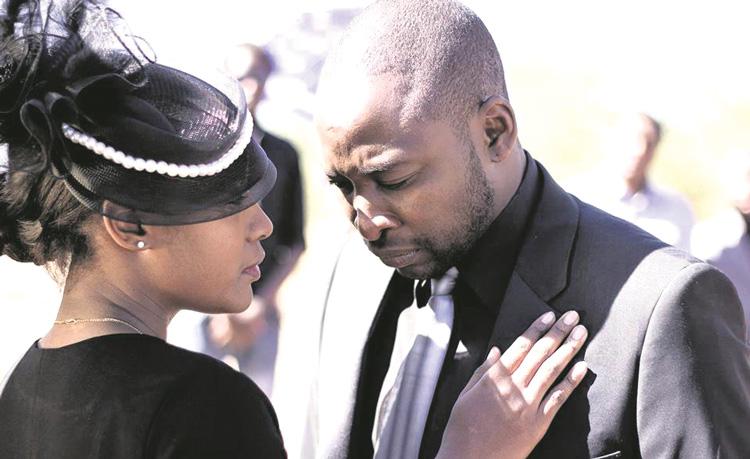
Katutura – Film Review

With the imagery of shacks scattered across the savannah landscape and communal gatherings at Kapana stands and kuka shops as the backdrop, Katutura is a localised setting for the archetypal gangster narrative where at the centre of the city’s bustle, people are trying to beat the odds and pave their own path. But with Windhoek already being such a small city, this does not prove to be an easy task; everything is connected and you may find yourself being part of a struggle you never signed up for.
Katutura tells a story quite different from that which you might have anticipated originally. Even though it highlights some features that are a part of our capital city’s reality, it is more of an embellishment rather than a raw representation of it. It does seem like a story book narrative where much of the story is sensationalised; there are minor elements that you would not typically experience in the typical Namibian setting. However, this gives you the clue that the focus lies more on the mood that this story is trying to create.
Dangi (‘Chops’ Tshoopara), having recently been released from prison, is on a mission to avenge the death of his younger brother, Pele. Also having been involved in a stint which involves diamonds, Dangi will have to locate the jewels and find his brother’s killer, all while arousing the least amount of suspicion from the police. He also has to deal with his ex-lover and mother of his child, Esme (Odile Muller), an aspiring singer and cocaine addict. This part of his life, Foibe (Tjuna Kauapirura), his newly-wed wife is not aware of.
But Dangi is a newly upright man and he is convinced that somehow he will make it work. However, his former connection with gang chief, Shivago (Obed Emvula), does have its price to pay. Shivago has a new target to push his ‘product’; a bright, but wheelchair-bound high school student named Kondja (Gift Uzera). Dangi needs to keep Shivago from digging his claws into Kondja, lest he ends up like his younger brother, Pele.
The morality tale becomes apparent here, and it is interesting to see how the structure of this theme will survive with so many dominant characters. But each leading person’s role only enhances the potency of the narrative. And in a story such as this one where the focus is on a community, each character’s role is necessary. Instead of a flat or overcomplicated story that focuses on one person, we have a multi-dimensional narrative where each feature has its own distinct face. I was also pleased with the acting, particularly by Uzera’s performance. With his face alone he is able to depict his character in a way that really touches the heart.
The directing is probably the most noticeable thing that gives this story its kick, though. The movie’s cinematography really plays a role in making a loaded storyline more palatable. With clear visuals, the colour grading is spot on in creating the overall tone of each scene. And from start to finish, the story is shown through beautiful shots and dynamic angles that really add movement and depth to the progression and development of the storyline.
I am very impressed. A lot more than I thought I would be with Namibia’s first major feature film. Right now, for marketing reasons, Katutura will screen for a limited time at selected venues but I am eager to watch it again when it becomes available on DVD.











































